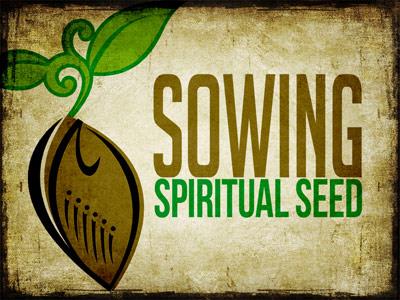-
How's Your Hearing?
Contributed by Martin Wiles on Nov 28, 2017 (message contributor)
Summary: God's Word encounters various types of heart soil as it preached and taught, and a person's response is determined by what kind of preparation has taken place.
HOW'S YOUR HEARING?
MATTHEW 13:1-9
INTRODUCTION
Some know firsthand what it is to have a hearing problem. Those who have one are often required to have a hearing aid. Others choose not to. Losing our hearing or even a part of it is a very serious and aggravating thing. Some have what is termed “selective hearing.” My family often kidded my father about his hearing problem. I recall the time it became evident that Daddy needed a hearing aid, but he did not like to admit he had a hearing problem. Daddy's hobby was woodwork. He often used very loud machines without wearing ear plugs. This, no doubt, led to his hearing problem. Sometimes, these lack of hearing situations were comical. I remember one occasion when most of the family was together for a Labor Day meal. Momma had just asked everyone around the table if they needed a refill on their tea, when a couple of minutes later Daddy asked the same thing. He claims he was out of the room to answer the telephone when Momma asked the question. We had to remind him that he was sitting right there.
I also recall working in the textile mill and having to have hearing tests every so often. Even though required to wear hearing aids, we worked around machines, especially in the weave room, that were very loud. If you wanted to talk with the person next to you, you had to almost scream for them to hear you. Many times, we simply had to learn to read lips or hand motions. There, we had the ability to hear but could not hear because of outside interference.
This is what Jesus speaks of in this parable. The people he told the parable to had the ability to hear, but many of them were not because of some type of interference.
The mother and brothers of Jesus had just come to look for him. Their intent was probably to try and persuade him to stop his preaching and teaching lest it cost him his life. Jesus has now left that house and is sitting by the sea. Though the religious leaders of Jesus' day often tried to trap him and kill him, the common people were fascinated by his teachings. The multitude was so great on this occasion that he got into a boat to teach. As the multitude stood on the beach, Jesus began to tell them a parable, a normal style of teaching for him. He tells of a farmer who went out to sow seed. Farming was the way of life for many people during this time, and it may be that Jesus even saw a farmer in the distance as he told the parable. The farmer would sling the seed bag over his shoulder, walk up and down the furrows of his field and scatter the seed. Using this method of planting, we can understand that it was impossible to control where the seed fell. Jesus tells of four kinds of soil upon which the seed fell.
The first type of soil was the ground beside the road. This road was a path that separated fields. It was walked on by the farmers as they made their way between the fields and by travelers as they traveled from one part of the country to another. We can compare it to the part of our gardens located between the rows of crops. As we walk on that part of the garden, over time it will get hard. The roads Jesus speaks of were not plowed. Because of the traffic, the dirt was packed down hard. When the seed fell on this soil, it could not penetrate it. Therefore, it would not take root and grow. Being exposed as it was, it was common for the birds to swoop down and devour them.
The second type of soil Jesus mentions was rocky soil. This does not mean that the soil was full of rocks. The farmer would have removed such rocks. Jesus refers to a bed of solid rock that lay just below where the plow of the farmer would reach. The soil that covered this bed of limestone rock was very shallow in depth. The seeds that fell here would spring up quickly, but since the roots of the plant could not penetrate very deeply the plant would soon wither.
The third type of soil was infested with thorns. This ground had been cultivated and looked good, but it wasn’t. When the seed sprouted, so did the thorns.
The final type of soil was the good soil. This was the ground that had been plowed and was loose and soft. It was also deep enough for the plants to grow. Here the seed would grow well.
After telling the story, Jesus took aside some of his followers and disclosed the meaning of the story. Because of their faith, they were able to understand what Jesus was teaching through the story.

 Sermon Central
Sermon Central



